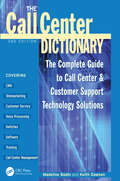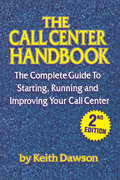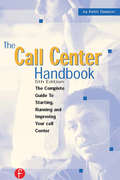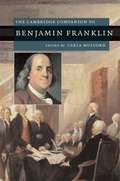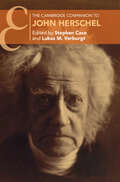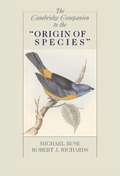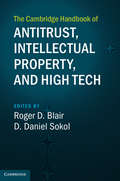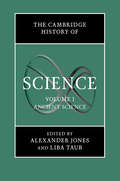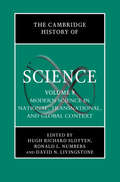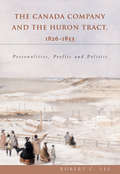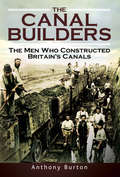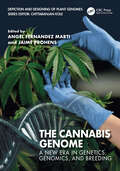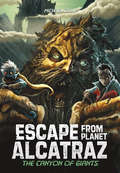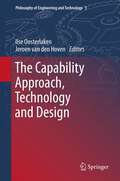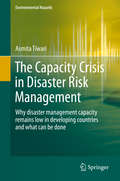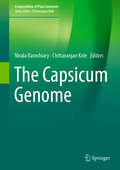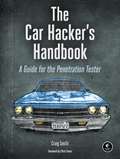- Table View
- List View
The Call Center Dictionary: The Complete Guide to Call Center and Customer Support Technology Solutions
by Madeline BodinCall centres have become the crucial front line for managing customer relationships. This book covers a range of call center terminology. It explains relevant terms, and provides the call center manager with a quick reference that covers the technology and operational issues that come up in running and improving a call center.
The Call Center Handbook
by Keith DawsonThis book is for people who work in a call center and common traits the call center location must offer. It contains practical observations about how to use particular technologies, and ideas about how to run the call center, which has become its own corporate discipline.
The Call Center Handbook: The Complete Guide to Starting, Running, and Improving Your Call Center
by Keith DawsonNeed to know how to buy a phone switch for your call center? How to measure the productivity of agents? How to choose from two cities that both want your center? No problem. The Call Center Handbook is a complete guide to starting, running, and im
The Call that Started It All (Fountas & Pinnell Classroom, Guided Reading Grade 5)
by Suzanne SladeThe Day Everything Changed It's getting dark and you need a ride. If it's 1973, you go to a pay phone, drop in some change, and call home. Today you make a call on a phone you carry with you and all you need to worry about is a dead battery. NIMAC-sourced textbook
The Cambridge Companion to Benjamin Franklin
by Carla MulfordComprehensive and accessible, this Companion addresses several well-known themes in the study of Franklin and his writings, while also showing Franklin in conversation with his British and European counterparts in science, philosophy, and social theory. Specially commissioned chapters, written by scholars well-known in their respective fields, examine Franklin's writings and his life with a new sophistication, placing Franklin in his cultural milieu while revealing the complexities of his intellectual, literary, social, and political views. Individual chapters take up several traditional topics, such as Franklin and the American dream, Franklin and capitalism, and Franklin's views of American national character. Other chapters delve into Franklin's library and his philosophical views on morality, religion, science, and the Enlightenment and explore his continuing influence in American culture. This Companion will be essential reading for students and scholars of American literature, history and culture.
The Cambridge Companion to Darwin
by Jonathan Hodge Gregory RadickThe naturalist and geologist Charles Darwin (1809-82) ranks as one of the most influential scientific thinkers of all time. In the nineteenth century his ideas about the history and diversity of life - including the evolutionary origin of humankind - contributed to major changes in the sciences, philosophy, social thought and religious belief. This volume provides the reader with clear, lively and balanced introductions to the most recent scholarship on Darwin and his intellectual legacies. A distinguished team of contributors examines Darwin's main scientific ideas and their development; Darwin's science in the context of its times; the influence of Darwinian thought in recent philosophical, social and religious debate; and the importance of Darwinian thought for the future of naturalist philosophy. New readers will find this a most convenient and accessible guide to Darwin. Advanced students and specialists will find a conspectus of recent developments in the interpretation of Darwin.
The Cambridge Companion to Einstein
by Michel Janssen Christoph LehnerThis volume is the first systematic presentation of the work of Albert Einstein, comprising fourteen essays by leading historians and philosophers of science that introduce readers to his work. Following an introduction that places Einstein's work in the context of his life and times, the book opens with essays on the papers of Einstein's 'miracle year', 1905, covering Brownian motion, light quanta, and special relativity, as well as his contributions to early quantum theory and the opposition to his light quantum hypothesis. Further essays relate Einstein's path to the general theory of relativity (1915) and the beginnings of two fields it spawned, relativistic cosmology and gravitational waves. Essays on Einstein's later years examine his unified field theory program and his critique of quantum mechanics. The closing essays explore the relation between Einstein's work and twentieth-century philosophy, as well as his political writings.
The Cambridge Companion to Galileo
by Peter MachamerNot only a hero of the scientific revolution, but after his conflict with the church, a hero of science, Galileo is today rivalled in the popular imagination only by Newton and Einstein. But what did Galileo actually do, and what are the sources of the popular image we have of him? This collection of specially-commissioned essays is unparalleled in the depth of its coverage of all facets of Galileo's work. A particular feature of the volume is the treatment of Galileo's relationship with the church. It will be of interest to philosophers, historians of science, cultural historians and those in religious studies.
The Cambridge Companion to John Herschel (Cambridge Companions to History)
by Stephen Case Lukas M. VerburgtIt has been said that being scientific in Victorian England meant to be as much like John Herschel as possible. This volume shows readers what it meant to be John Herschel (1792-1871), one of England's most prominent polymaths. Drawing on his published oeuvre and recent scholarship, as well as an immense amount of surviving archival material and correspondence, these essays present the first ever comprehensive account of Herschel's life, work, and legacy. From mathematics and astronomy, to philosophy and politics, the volume sheds new light on his crucial role in the history of Victorian science and explores a wide array of issues in the history of nineteenth-century culture, philosophy, mathematics, and beyond.
The Cambridge Companion to Newton
by Smith George E. Rob IliffeSir Isaac Newton (1642–1727) was one of the greatest scientists of all time, a thinker of extraordinary range and creativity who has left enduring legacies in mathematics and physics. While most famous for his Principia, his work on light and colour, and his discovery of the calculus, Newton devoted much more time to research in chemistry and alchemy, and to studying prophecy, church history and ancient chronology. This new edition of The Cambridge Companion to Newton provides authoritative introductions to these further dimensions of his endeavours as well as to many aspects of his physics. It includes a revised bibliography, a new introduction and six new chapters: three updating previous chapters on Newton's mathematics, his chemistry and alchemy and the reception of his religious views; and three entirely new, on his religion, his ancient chronology and the treatment of continuous and discontinuous forces in his second law of motion.
The Cambridge Companion to Newton
by I. Bernard Cohen George E. SmithSir Isaac Newton (1642-1727) was one of the greatest scientists of all time, a thinker of extraordinary range and creativity who has left enduring legacies in mathematics and the natural sciences. In this volume a team of distinguished contributors examine all the main aspects of Newton's thought, including not only his approach to space, time, mechanics, and universal gravity in his Principia, his research in optics, and his contributions to mathematics, but also his more clandestine investigations into alchemy, theology, and prophecy, which have sometimes been overshadowed by his mathematical and scientific interests.
The Cambridge Companion to the "Origin of Species"
by Robert J. Richards Michael RuseThe Origin of Species by Charles Darwin is universally recognised as one of the most important science books ever written. The Origin of Species is also a work of great cultural and religious significance, in that Darwin maintained that all organisms, including humans, are part of a natural process of growth from simple forms. This Companion commemorates the 150th anniversary of the publication of the Origin of Species and examines its main arguments. Drawing on the expertise of leading authorities in the field, it also provides the contexts - religious, social, political, literary, and philosophical - in which the Origin was composed. Written in a clear and friendly yet authoritative manner, this volume will be essential reading for both scholars and students More broadly, it will appeal to general readers who want to learn more about one of the most important and controversial books of modern times.
The Cambridge Encyclopedia of Darwin and Evolutionary Thought
by Michael RuseThis volume is a comprehensive reference work on the life, labors, and influence of the great evolutionist Charles Darwin. With more than sixty essays written by an international group representing the leading scholars in the field, this is the definitive work on Darwin. It covers the background to Darwin's discovery of the theory of evolution through natural selection, the work he produced and his contemporaries' reactions to it, and evaluates his influence on science in the 150 years since the publication of Origin of Species. It also explores the implications of Darwin's discoveries in religion, politics, gender, literature, culture, philosophy, and medicine, critically evaluating Darwin's legacy. Fully illustrated and clearly written, it is suitable for scholars and students as well as the general reader. The wealth of information it provides about the history of evolutionary thought makes it a crucial resource for understanding the controversies that surround evolution today.
The Cambridge Handbook of Antitrust, Intellectual Property, and High Tech
by Blair Sokol D. Daniel Roger D.This Cambridge Handbook, edited by Roger D. Blair and D. Daniel Sokol, brings together a group of world-renowned professors in the fields of law and economics to assess the theory and practice of antitrust, intellectual property, and high tech. With the increased globalization of antitrust, a better understanding of how law and economics shape this interface will help academics, policymakers, and practitioners to understand the existing state of academic literature, its limits, and its relevance to real-world antitrust. The book will be an essential resource for anyone seeking to understand academic and policy considerations shaping the world of antitrust, intellectual property, and high tech.
The Cambridge History of Capitalism: From Ancient Origins to 1848
by Jeffrey G. Williamson Larry NealThe first volume of The Cambridge History of Capitalism provides a comprehensive account of the evolution of capitalism from its earliest beginnings. Starting with its distant origins in ancient Babylon, successive chapters trace progression up to the 'Promised Land' of capitalism in America. Adopting a wide geographical coverage and comparative perspective, the international team of authors discuss the contributions of Greek, Roman and Asian civilizations to the development of capitalism, as well as the Chinese, Indian and Arab empires. They determine what features of modern capitalism were present at each time and place, and why the various precursors of capitalism did not survive. Looking at the eventual success of medieval Europe and the examples of city-states in northern Italy and the Low Countries, the authors address how British mercantilism led to European imitations and American successes, and ultimately, how capitalism became global.
The Cambridge History of Science: Instruments And Interpretations, To Celebrate The 60th Anniversary Of R .s . Whipple's Gift To The University Of Cambridge (The Cambridge History of Science)
by Alexander Jones Liba TaubThis volume in the highly respected Cambridge History of Science series is devoted to the history of science, medicine and mathematics of the Old World in antiquity. Organized by topic and culture, its essays by distinguished scholars offer the most comprehensive and up-to-date history of ancient science currently available. Together, they reveal the diversity of goals, contexts, and accomplishments in the study of nature in Mesopotamia, Egypt, Greece, Rome, China, and India. Intended to provide a balanced and inclusive treatment of the ancient world, contributors consider scientific, medical and mathematical learning in the cultures associated with the ancient world.
The Cambridge History of Science: Volume 8, Modern Science in National, Transnational, and Global Context (The Cambridge History of Science #Vol. 4)
by Ronald L. Numbers David N. Livingstone Hugh Richard SlottenThis volume in the highly respected Cambridge History of Science series is devoted to exploring the history of modern science using national, transnational, and global frames of reference. Organized by topic and culture, its essays by distinguished scholars offer the most comprehensive and up-to-date nondisciplinary history of modern science currently available. Essays are grouped together in separate sections that represent larger regions: Europe, Africa, the Middle East, South Asia, East and Southeast Asia, the United States, Canada, Australia, New Zealand, Oceania, and Latin America. Each of these regional groupings ends with a separate essay reflecting on the analysis in the preceding chapters. Intended to provide a balanced and inclusive treatment of the modern world, contributors analyze the history of science not only in local, national, and regional contexts but also with respect to the circulation of knowledge, tools, methods, people, and artifacts across national borders.
The Canada Company and the Huron Tract, 1826-1853: Personalities, Profits and Politics
by Robert C. LeeThe Canada Company was responsible for the opening and settling of over two million acres of land in Upper Canada. Author Robert C. Lee focuses his attention on the extensive parcel of land on the shores of Lake Huron that became known as the Huron Tract. His comprehensive research explores the underlying forces leading to the formation of the Company, the intriguing mix of people charged with responsibilities for the Company and the overall impact of its operations, leading to its present-day legacy. The politics of the day, coupled with diverse and colourful personalities – such as John Galt, Tiger Dunlop, William Allan, Thomas Mercer Jones, Frederick Widder, Sir Peregrine Maitland, Bishop Macdonnell and Bishop Strachan – introduce an interesting blend of vision, intrigue, mischief and day-to-day survival strategies that make for compelling reading. Add to this the shareholders perspective of the Company versus the settlers perspective and you have a fascinating glimpse of pioneer conditions. Included are descriptions of early towns such as Guelph and Goderich, as well as background on the Huron Tract township names. "Robert Lee’s outstanding book brings to life the unusual assemblage of characters who were instrumental in the development of Upper Canada’s largest private settlement scheme – the Huron Tract. Their relationships with each other, and especially with the Canada Company for which many of them worked, make a great story." – Lutzen Riedstra, Stratford-Perth Archivist "Robert Lee has vividly recreated the personalities and the political intrigues that were part of the Canada Company’s operation – the largest one of its type in Ontario’s history. The most comprehensive work to date on this fascinating era, this book is eminently readable and a must-have for history lovers. – Ron Brown, author of Ghost Towns of Ontario
The Canal Builders: The Men Who Constructed Britain's Canals
by Anthony BurtonCanal Builders is a classic history book for anyone interested in the development of Britain's canal system. The book, which was first published in the 1970s, is now republished here in a new fifth edition. It takes the reader from the middle of the eighteenth century, to the start of the railway age in the early nineteenth century. Anthony Burton has revised and improved the original text, using new material that he has found in archives since it was first published, and has added many extra illustrations. This is the remarkable story of the many groups of people who were responsible for building Britain's canal system. There were industrialists such as Josiah Wedgwood, who promoted canals to help his own industry, and speculators, financed the projects in the hope of a good return. The work was planned by engineers, some of whom, such as James Brindley and Thomas Telford, have become famous, while others have remained virtually unknown but still did magnificent work. This is also the story of the great, anonymous army of men who actually did the work the navvies. This was the first book ever to study the lives of these labourers in detail. Altogether it is an epic story of how the transport route that made the industrial revolution possible was built.'Well planned and well written There is no better introduction to the early canal age.' The EconomistLinks End Links Author End Author
The Cannabis Genome: A New Era in Genetics, Genomics, and Breeding (Depiction and Designing of Plant Genomes)
by Angel Fernandez Marti Jaime ProhensCannabis is undergoing a remarkable transformation—from a misunderstood plant to a cornerstone of modern medicine, industry, and agriculture. This book bridges the gap between tradition and innovation, providing a holistic exploration of cannabis genetics, breeding, genomics, and its wide-ranging applications. Authored by leading researchers, industry pioneers, and legacy breeders, it offers a unique blend of academic rigor and practical insights.Unlike other resources, this book integrates perspectives from public and private sectors, honoring those who have advanced cannabis cultivation despite legal and social barriers. It recognizes the pivotal role of startups like MyFloraDNA, which invest heavily in groundbreaking research, shaping the future of this extraordinary plant.Key Features: Comprehensive insights into cannabis origins, taxonomy, and genetic diversity. Advanced breeding techniques and applications of tissue culture, CRISPR, and "omics" technologies. Practical strategies for pest management, crop improvement, and intellectual property protection. Forward-looking perspectives on cannabis in personalized medicine, sustainability, and global agriculture. Written for scientists, growers, policymakers, and enthusiasts, this book addresses the economic, social, and scientific dimensions of cannabis. It offers actionable knowledge to drive progress in cultivation, industry, and research.
The Canyon of Giants (Escape from Planet Alcatraz)
by Michael DahlHoping to avoid the Alcatraz guards, Zak Nine and Erro decide to climb down into a deep canyon to hide. But soon the boys see some huge rock formations that move! Zak and Erro are quickly caught by the giant criminals that have been imprisoned in the deep gorge. Some of the giants want to hand the boys over to the Alcatraz guards to gain their own freedom. But a few giants would rather turn the boys into dinner! Will Zak and Erro outwit their captors and get away before becoming the giants' next meal?
The Capability Approach, Technology and Design
by Jeroen Van Hoven Ilse OosterlakenThe capability approach of Martha Nussbaum and Amartya Sen places human capabilities at the centre stage of discussions about justice, equality, development and the quality of life. It rejects too much emphasis on mere preference satisfaction or resource provision and highlights the importance of human agency and freedom. This approach has already significantly influenced different fields of application, such as economics and development studies. Only recently have scholars started to explore its relevance for and application to the area of technology and design, which can be crucial factors in the expansion of human capabilities. How does technology influence human capabilities? What difference could a capability approach make to policies and practices of applying ICT in development processes in the South? How can we criticize and improve the design of technology from the perspective of the capability approach? The authors of this volume explore the implications of the capability approach for technology & design and together create the first volume on this emerging topic.
The Capacity Crisis in Disaster Risk Management
by Asmita TiwariHow can a place be built and managed so that it is safe for people to live? Ironically, many governments and citizens keep on asking the same question after every new disaster. Why, even with high levels of investment in increasing government's capacity to manage disasters, do the impacts of disasters continue to increase? What can the governments do differently? What is the role of local communities? Where should aid agencies invest? This book looks into these critical questions and highlights how current capacity development efforts might be resulting in the opposite--capacity crisis or capability trap. The book provides a new approach for the understanding and the developing of effective local capacity to reduce and manage future disaster impacts.
The Capsicum Genome (Compendium of Plant Genomes)
by Chittaranjan Kole Nirala RamchiaryThis book contains complete information on Capsicum genetic resources, diversity, evolution, history and advances in capsicum improvement from classical breeding to whole genome sequencing, genomics, databases and its impact on next generation pepper breeding. Capsicum is one of the most important Solanaceae crops grown worldwide as vegetables and spices. Due to its high economic value and to meet the demands of enormous population growth amid biotic and abiotic stresses, there has been an ongoing breeding program utilizing available genetic resources with desired traits to increase the sustainable productivity of this crop for several decades. However, the precision breeding of this crop for desired traits only started with the advent of molecular markers. The recent advances in high-throughput genome sequencing technologies helped in the quick decoding of transcriptome, epigenome, nuclear and organeller genomes, thereby enhancing our understanding of the structure and function of the Capsicum genome, and helping in genomics assisted breeding. These advanced technologies coupled with conventional mapping have greatly contributed towards dissection and manipulation of economically important traits more precisely and made less time consuming.
The Car Hacker's Handbook: A Guide for the Penetration Tester
by Craig SmithModern cars are more computerized than ever. Infotainment and navigation systems, Wi-Fi, automatic software updates, and other innovations aim to make driving more convenient. But vehicle technologies haven’t kept pace with today’s more hostile security environment, leaving millions vulnerable to attack.The Car Hacker’s Handbook will give you a deeper understanding of the computer systems and embedded software in modern vehicles. It begins by examining vulnerabilities and providing detailed explanations of communications over the CAN bus and between devices and systems.Then, once you have an understanding of a vehicle’s communication network, you’ll learn how to intercept data and perform specific hacks to track vehicles, unlock doors, glitch engines, flood communication, and more. With a focus on low-cost, open source hacking tools such as Metasploit, Wireshark, Kayak, can-utils, and ChipWhisperer, The Car Hacker’s Handbook will show you how to:–Build an accurate threat model for your vehicle–Reverse engineer the CAN bus to fake engine signals–Exploit vulnerabilities in diagnostic and data-logging systems–Hack the ECU and other firmware and embedded systems–Feed exploits through infotainment and vehicle-to-vehicle communication systems–Override factory settings with performance-tuning techniques–Build physical and virtual test benches to try out exploits safelyIf you’re curious about automotive security and have the urge to hack a two-ton computer, make The Car Hacker’s Handbook your first stop.
